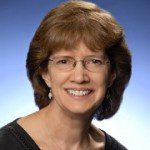Professor Kathleen Segerson was featured recently on the Harvard Environmental Economics Program podcast “Environmental Insights.”
Her conversation with Robert Stavins is the subject of his blog post The Challenge Posed to U.S. Climate Policy by Political Polarization:
“In my podcast series, “Environmental Insights: Discussions on Policy and Practice from the Harvard Environmental Economics Program,” I’ve enjoyed chatting with economists who have been leaders in the realm of environmental, energy, and resource economics. My most recent guest fits in that group, because I was joined by Kathleen Segerson, who in addition to her academic and scholarly research and teaching, has served on numerous state, national, and international advisory boards. The podcast is produced by the Harvard Environmental Economics Program. You can listen to our complete conversation here.“

The full post is available online at: https://www.robertstavinsblog.org/2023/06/01/the-challenge-posed-to-u-s-climate-policy-by-political-polarization/

 Congratulations to Professor
Congratulations to Professor 


![ross[1]](https://econ.media.uconn.edu/wp-content/uploads/sites/681/2012/03/ross1-257x300.jpg) Congratulations to Profs.
Congratulations to Profs. 